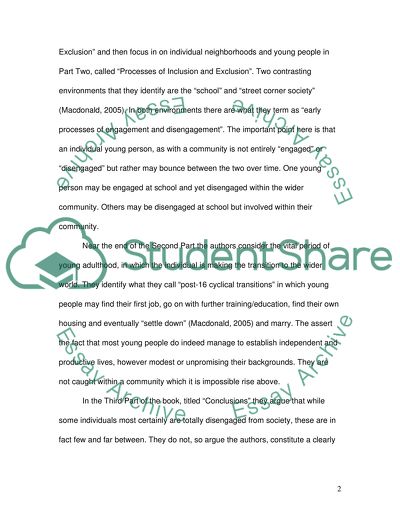Cite this document
(“Social Underclass Essay Example | Topics and Well Written Essays - 1500 words”, n.d.)
Social Underclass Essay Example | Topics and Well Written Essays - 1500 words. Retrieved from https://studentshare.org/sociology/1516928-social-underclass
Social Underclass Essay Example | Topics and Well Written Essays - 1500 words. Retrieved from https://studentshare.org/sociology/1516928-social-underclass
(Social Underclass Essay Example | Topics and Well Written Essays - 1500 Words)
Social Underclass Essay Example | Topics and Well Written Essays - 1500 Words. https://studentshare.org/sociology/1516928-social-underclass.
Social Underclass Essay Example | Topics and Well Written Essays - 1500 Words. https://studentshare.org/sociology/1516928-social-underclass.
“Social Underclass Essay Example | Topics and Well Written Essays - 1500 Words”, n.d. https://studentshare.org/sociology/1516928-social-underclass.


